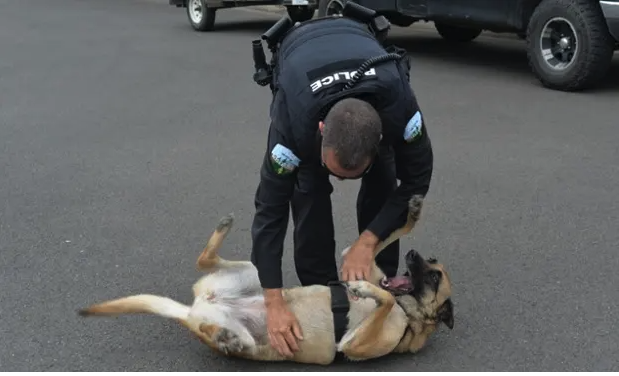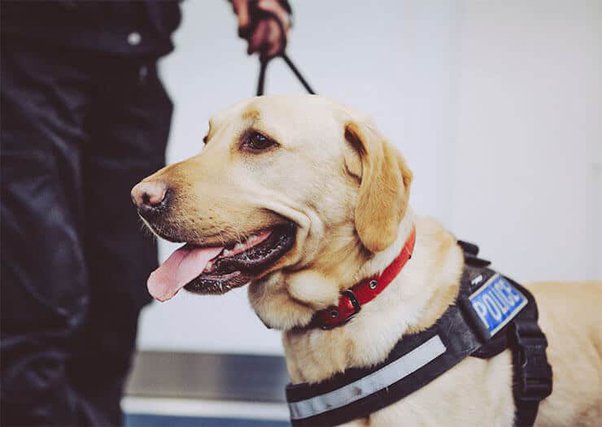Cannabis Legalization: The Impact on Canine Cannabis Sniffers & Ensuring Their Retirement
NEW YORK-The legalization of cannabis in various states across the USA has brought about significant changes in multiple industries, including law enforcement. One area that has been significantly affected is the use of canine cannabis sniffers. These highly trained dogs have been instrumental in detecting illegal drugs, including cannabis for many years. However, with the increasing acceptance and legalization of cannabis, their roles are diminishing, and new challenges arise in providing a secure and comfortable retirement for these loyal companions.
The Impact of Cannabis Legalization on Canine Cannabis Sniffers:
With the decriminalization and legalization of cannabis for medical and recreational use in many states, the demand for canine cannabis sniffers has reduced considerably. In the past, these dogs played a crucial role in law enforcement efforts to detect drugs, including cannabis, in various settings like airports, border checkpoints, and other public areas. However, with cannabis no longer considered illegal in numerous states, their specific skillset has become less valuable.
As a result, law enforcement agencies have been reducing the deployment of canine cannabis sniffers or reallocating them to focus on other drugs that remain illegal. This shift in demand has left many of these highly trained dogs without a clear purpose and raises the question of how they should be cared for in their retirement.

Caring for Canine Cannabis Sniffers in Retirement:
Ensuring a comfortable and secure retirement for canine cannabis sniffers should be a priority for law enforcement agencies and society as a whole. These dogs have dedicated their lives to serving and protecting the community, and it is our responsibility to provide them with the care they deserve in their golden years. Here are some crucial steps that can be taken:
- Reevaluation of Roles: As cannabis sniffers’ roles diminish, law enforcement agencies should evaluate each dog’s capabilities and consider retraining them for other tasks. Many of these dogs have been trained to detect other illegal drugs, explosives, or search and rescue missions. Reassigning them to these roles can help maintain their sense of purpose and usefulness.
- Adoption Programs: If a canine cannabis sniffer is unable to adapt to new tasks or is reaching a stage where retirement is essential, adoption programs should be established. These programs can connect retired dogs with loving families or responsible handlers who can provide them with a comfortable home for the rest of their lives.
- Medical Care: Just like any other working animal, retired canine cannabis sniffers may develop health issues with age. Law enforcement agencies should provide adequate medical care to these dogs, covering regular check-ups, vaccinations, and any necessary treatments or surgeries.
- Housing and Facilities: Special facilities can be established to house retired canine cannabis sniffers. These facilities should offer a comfortable and stimulating environment, with ample space for the dogs to roam and interact with others. Trained staff should be present to cater to their specific needs.
- Supportive Funding: The financial responsibility for caring for retired canine cannabis sniffers should not fall solely on law enforcement agencies. The government and private organizations should provide supportive funding to ensure the dogs’ retirement needs are adequately met.
- Recognition and Honor: Canine cannabis sniffers should be recognized and honored for their dedicated service to society. Retirement ceremonies can be organized to commemorate their service and acknowledge their contributions to law enforcement efforts.
The legalization of cannabis in the USA has undoubtedly impacted the roles of canine cannabis sniffers. While their expertise in detecting weed is no longer as critical, their years of service and loyalty should not be forgotten. It is our moral obligation to ensure that these retired dogs are well cared for in their retirement. By reevaluating their roles, establishing adoption programs, providing medical care, and offering comfortable housing, we can ensure that these loyal companions enjoy a happy and dignified life after their years of dedicated service to society. Let us come together as a community to honor and support these canine heroes in their well-deserved retirement.




































